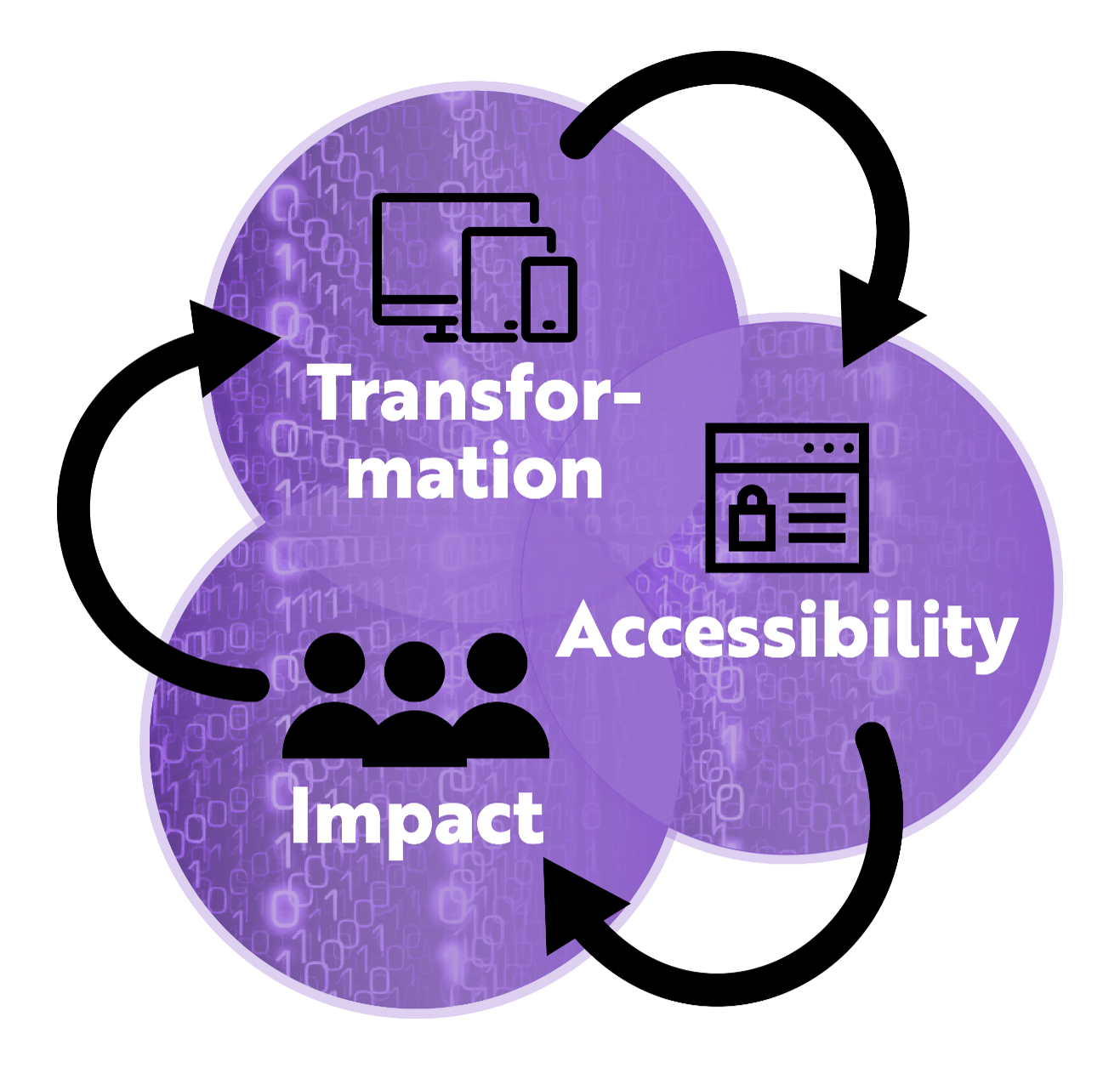Research
DigiHeri enhances multidisciplinary research by bringing together and building on expertise and cooperation in computer science, cultural heritage studies, digital culture, education, history and archaeology, language technology, linguistics, legal studies, media studies, and the digital humanities. The overall goal of DigiHeri is to understand the transformation of cultural heritage, and its ramifications, in the digital age. It has a clear emphasis on social impact, on the visibility of cultural heritage in public life and on its role in education. DigiHeri is organised around three themes, transformation, accessibility and impact, and addresses specific research questions within these thematic fields (click below to read more).
1. Transformation
The digital condition has influenced the way we conceive, explore and represent the past. It has also challenged how cultural heritage is defined and presented. This theme analyses the transformation of cultural heritage, the impact of digitisation on cultural heritage, and the role of emerging digital cultures as cultural heritage.
1.1. What kind of cultural heritage is and has been produced by the digitalisation of society? What is cultural heritage today?
1.2. How does digitised cultural heritage shape our understanding of the past?
1.3. How does the digital condition influence non-digital heritage?
2. Accessibility
This theme emphasises the strategies and possible limitations of making cultural heritage accessible in digital form. It involves the study of different accessibility and co-creation models as well as the building of the forefront of datasets and tools in language technology, datascience and the digital humanities, and social sciences.
2.1. What kind of strategies, and policies, have been used in making digital cultural heritage accessible?
2.2. How can we harness advances in AI, data science and computational linguistics to develop innovative tools and methodologies for analysing, enriching and sharing cultural heritage?
2.3 How has digitalisation led to the emergence of new models of co-creation, for example in developer communities, and how is this shaping culture?
3. Impact
This theme includes engagement with critical discussions on new cultural heritages and mapping the impact of joint infrastructures outside academia. It involves researchers in the emerging heritage communities as actors of the heritage process and reflexive co-production of the heritage of the digital age, including learning and teaching interventions.
3.1. How can digital resources be effectively and diversely activated for cultural heritage research and education, with a wider societal impact?
3.2. How can researchers more successfully participate in the heritage processes?
3.3. How can learning and teaching interventions be developed to enhance the sustainable use of cultural heritage?

